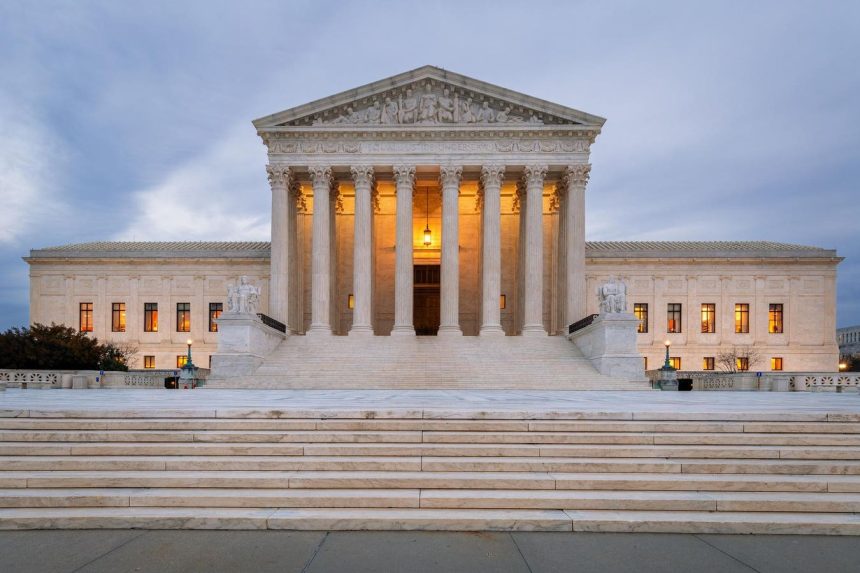Although the Supreme Court’s term is nearly finished—and this term has been exciting for the tax world, with cases like Moore, Connelly, and Loper Bright Enterprises—the Court already has at least one case with tax-related facts for its upcoming term. In United States v. Miller, the Supreme Court has agreed to hear a case about whether a bankruptcy trustee may avoid a debtor’s tax payment to the United States.
Miller is a bankruptcy case with underlying tax-related facts. In the case, a corporate debtor paid the personal tax debts of two of its corporate officers. The bankruptcy trustee brought suit against the United States to “avoid” (meaning to undo a transfer) those payments made to the IRS.
In bankruptcy, the trustee may avoid a transfer under 11 U.S.C. § 544(b)(1) if it is “voidable under applicable law by a creditor holding an unsecured claim . . . .” In a matter of speaking, the trustee is allowed to “step into the shoes” of a state-law creditor and use state law to avoid the transfer. Importantly, the trustee’s avoiding powers under § 544(b) are derivative from those of an actual creditor.
In Miller, the trustee argued that Utah’s Uniform Fraudulent Transfer Act was the underlying applicable law. The federal government did not contest the elements required to be shown by a state-law creditor to use the fraudulent transfer act, but it argued that an actual state-law creditor could not proceed in such an action outside of bankruptcy because of the federal government’s sovereign immunity.
In other words, a state-law creditor could not avoid the debtor’s tax payments that it made because the federal government enjoys sovereign immunity, which would bar the creditor’s action outside of bankruptcy. In essence, the federal government argued that because an actual creditor would not succeed outside of bankruptcy, that result should not be different inside of bankruptcy under § 544(b).
At issue in the case, then, is different interpretations of the Bankruptcy Code’s waiver of the federal government’s sovereign immunity, which is found in 11 U.S.C. § 106. Section 106 provides that “sovereign immunity is abrogated as to a governmental unit to the extent set forth in this section with respect to [various sections, including § 544].”
By its text, § 106 abrogates the sovereign immunity for the trustee to bring the § 544 action in the bankruptcy court. However, a circuit split exists whether § 106 also abrogates sovereign immunity when considering the underlying “applicable law” (e.g., the Utah Uniform Fraudulent Transfer Act).
In Miller, the Tenth Circuit held that the waiver of sovereign immunity in § 106 applies both to bringing the action under § 544 and to analyzing the underlying state cause of action.
The Tenth Circuit’s decision in Miller continued a conflict with the decision of the Seventh Circuit in In re Equipment Acquisition Resources Inc., 742 F.3d 743 (7th Cir. 2014) (“EAR”). In EAR, the Seventh Circuit held that § 106 did not “displace the actual-creditor requirement in § 544(b)(1).” Thus, because a creditor could not bring a fraudulent-transfer claim against the IRS, it held the same was true under § 544(b)(1).
After Miller, there are now four circuit courts of appeals that have addressed this issue and that have arrived at different answers. As noted, the Seventh Circuit in EAR held that the trustee could not recoup the tax payment. On the other hand, the Ninth and Fourth Circuits (along with the Tenth Circuit in Miller) have held oppositely and found that § 106 waives the sovereign immunity.
The case is an important one, as bankruptcy courts—in addition to the circuit courts noted above—have frequently addressed this issue. Moreover, the case is interesting to the consider with tax norms in mind, such as the general two- or three-year limitations period to recover taxes paid. Yet, in these cases—if they are successful—the tax recovery can be made against the government outside those time limits. As well, sovereign immunity issues can implicate constitutional concerns (and there are additional constitutional concerns in the case, such as the appropriations clause).
The case is United States v. Miller (No. 21-4135), and the Supreme Court granted certiori on June 24, 2024, to address “[w]hether a bankruptcy trustee may avoid a debtor’s tax payment to the United States under Section 544(b) when no actual creditor could have obtained relief under the applicable state fraudulent-transfer law outside of bankruptcy.” You can view the Supreme Court docket here.
This is only a summary of the case and some portions—including facts, issues, citations, or analysis—may have been omitted or edited; if you need advice in this area, please review the case in its entirety and consult an attorney.
Read the full article here
















